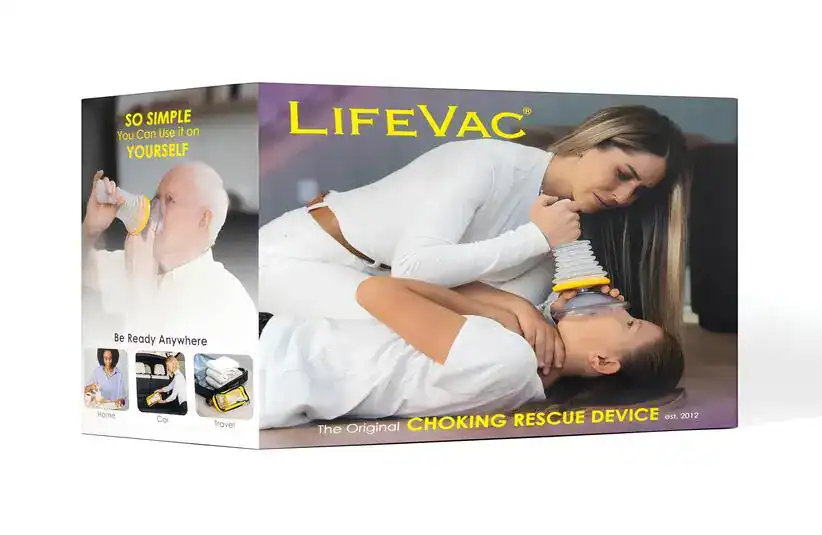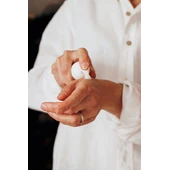FDA to LifeVac & Dechoker 11/13/25: Stop Selling BS Gadgets as Life‑Savers
The FDA isn’t being subtle about this one. It’s warning everyone. Letters went out to companies selling anti‑choking devices without clearance. The message: stop. Stop, right now.
And yes, they named names. LifeVac, the suction gadget paraded on morning shows and parent blogs, got slapped. The company brags about “thousands of lives saved” and boasts distribution in schools, restaurants, even police departments — but the FDA says none of it is backed by clearance. Dechoker LLC, another suction‑based device maker, was also called out. They’ve built a profitable niche by turning airway panic into product placement, selling fear as hardware.
These aren’t garage inventors tinkering in basements. They’re companies cashing in on crisis. The FDA’s tone is dry, but the subtext is sharp: you can’t just slap a logo on a plastic pump, call it “life‑saving,” and rake in profits. That’s not innovation. That’s bullsh— marketing dressed up as medicine.
The Stakes
Choking kills fast. Seconds count. The FDA says stick to what works: the Heimlich maneuver, abdominal thrusts, back blows, CPR. Protocols drilled into first aid classes. Tested. Trusted.
Unapproved tools? They promise quick fixes. But promises don’t save lives. False confidence wastes time. Time is oxygen. Lose it, lose the patient.
Every year, thousands die from choking incidents in the U.S. Most victims are children or older adults. That’s why the FDA is blunt: don’t gamble with untested devices when proven methods already exist. And yet, companies like LifeVac keep pushing glossy ads, tallying “lives saved” like sales figures, while skipping the hard part: evidence.
The Letters
The FDA’s warning letters are blunt. Stop marketing devices as medical tools. Stop claiming they prevent death. Stop pretending they replace proven methods.
Companies have days to respond. Fix it or face seizures, injunctions, enforcement. The clock is ticking.
This isn’t the first time. The FDA has cracked down before — on supplements sold as cures, on gadgets pitched as miracle fixes. Each time, the theme is the same: evidence first, marketing second. Dechoker’s slick campaigns may win clicks, but without clearance, they’re just another hustle dressed as health care.
Why It Matters
Medical devices aren’t toys. They’re regulated because lives hang on them. Clearance means data, safety tests, standards. Without that, a device is just a pitch.
The crackdown says it plain: innovation is fine, but accountability comes first. Tools can help — only if they’re proven. Until then, stick with the basics.
LifeVac and Dechoker may be profitable, but profit doesn’t equal proof. The FDA’s letters cut through the hype: until you show the data, your gadgets are just plastic promises.
Human Angle
Regulatory language is dry. But behind it are real people: parents, teachers, restaurant staff. Anyone who might face a choking emergency.
Picture a cafeteria. A child choking. A teacher panics. Do they grab a gadget from a drawer, or do they use the abdominal thrusts they learned in training? The FDA wants the answer to be clear.
So let’s translate. Not approved = not safe. Not cleared = not tested. In an emergency, don’t gamble. Use the protocol you know. Don’t let a company’s marketing pitch decide whether someone breathes.
Bigger Picture
This isn’t isolated. The FDA has been tightening the net on unapproved devices across the board. Supplements dressed as cures. Gadgets sold as miracles. Same theme: health claims need evidence.
For choking tools, urgency is sharper. A victim has minutes. Sometimes less. The wrong move can cost a life. That’s why the FDA is acting now.
The crackdown also signals to innovators: bring data. Bring trials. Bring proof. Without it, the market is closed. With it, the FDA can clear the way for safer tools. Until then, LifeVac’s “thousands saved” slogan is just a sales pitch, not science.
Closing Beat
The letters aren’t scare tactics. They’re guardrails. They remind us: safety comes from proven methods, not untested promises.
Protocols save lives. Tools may help — but only when cleared, tested, trusted. Until then, the best rescue is human hands, trained and ready.
Lives depend on clarity. The FDA’s tone may be dry, but the urgency is human. In choking emergencies, seconds matter. And until new devices earn clearance, the safest bet is still the old one: act fast, act trained, act human.







